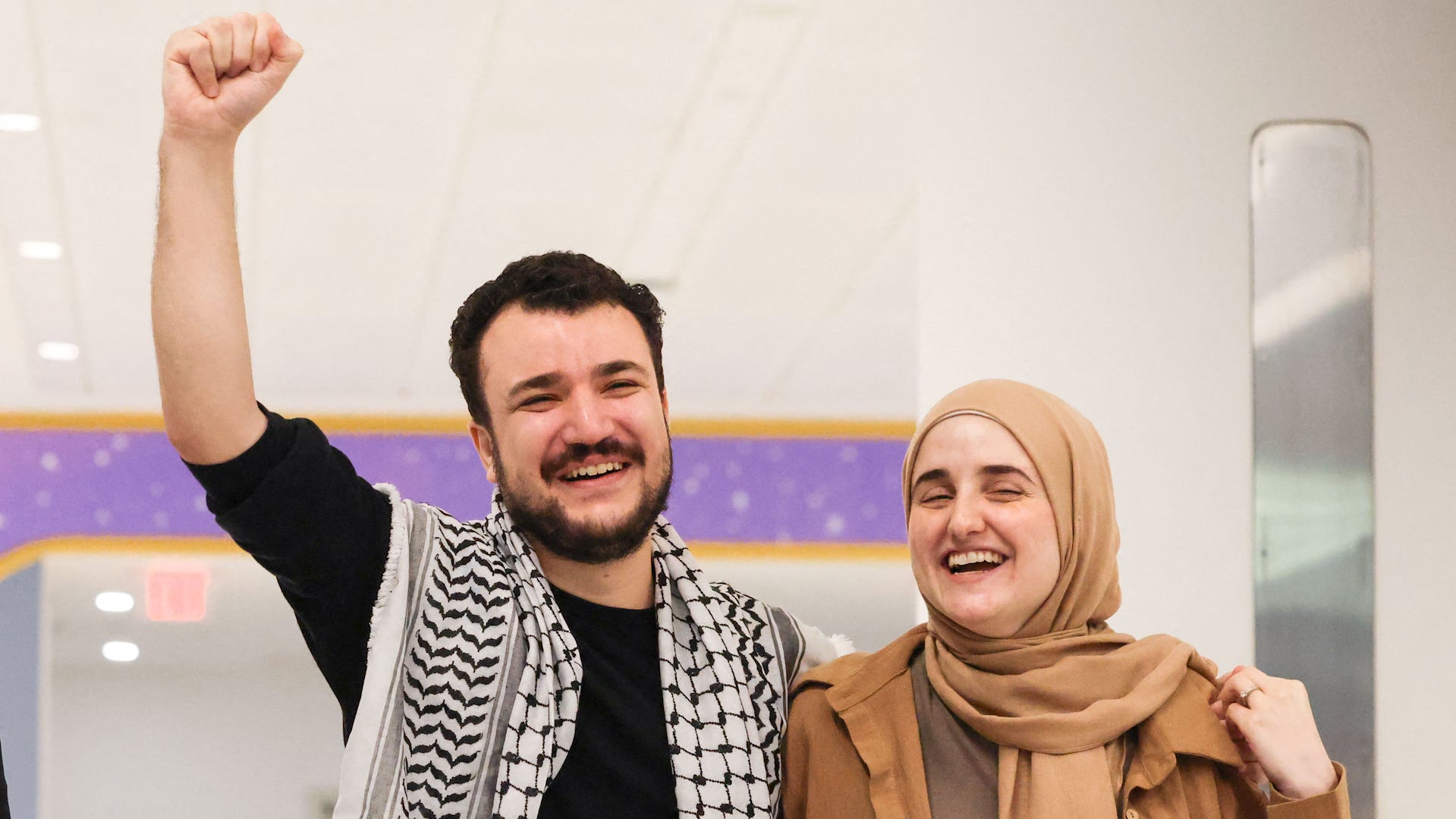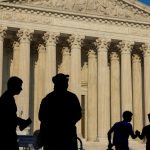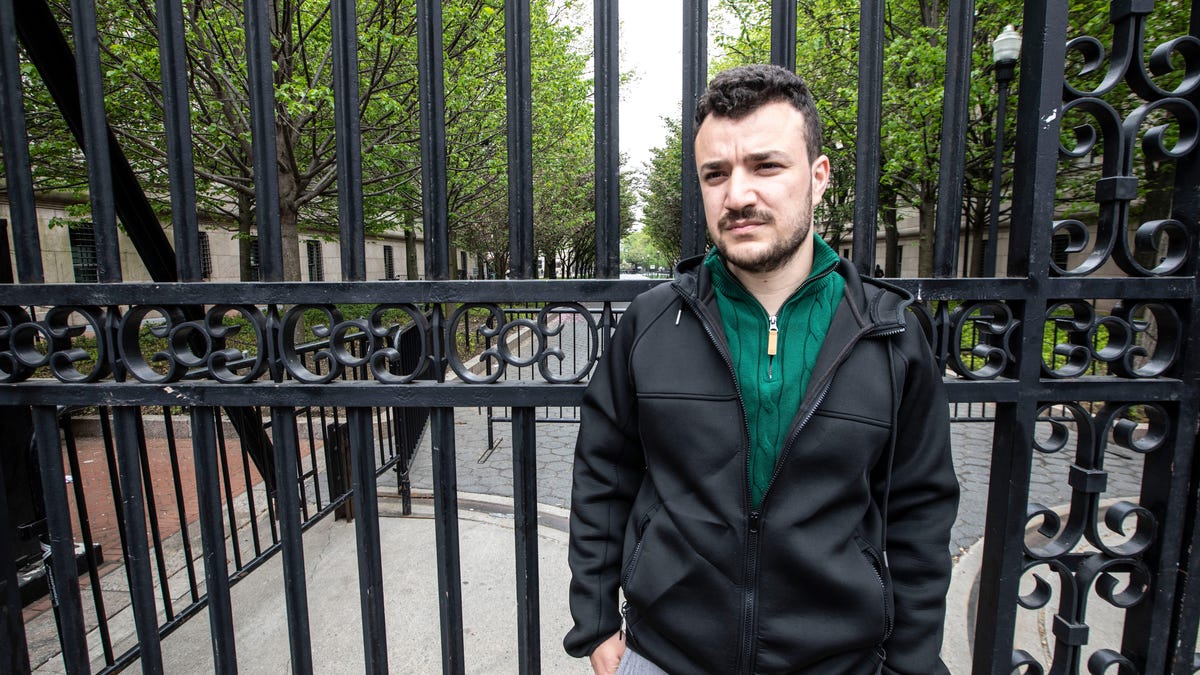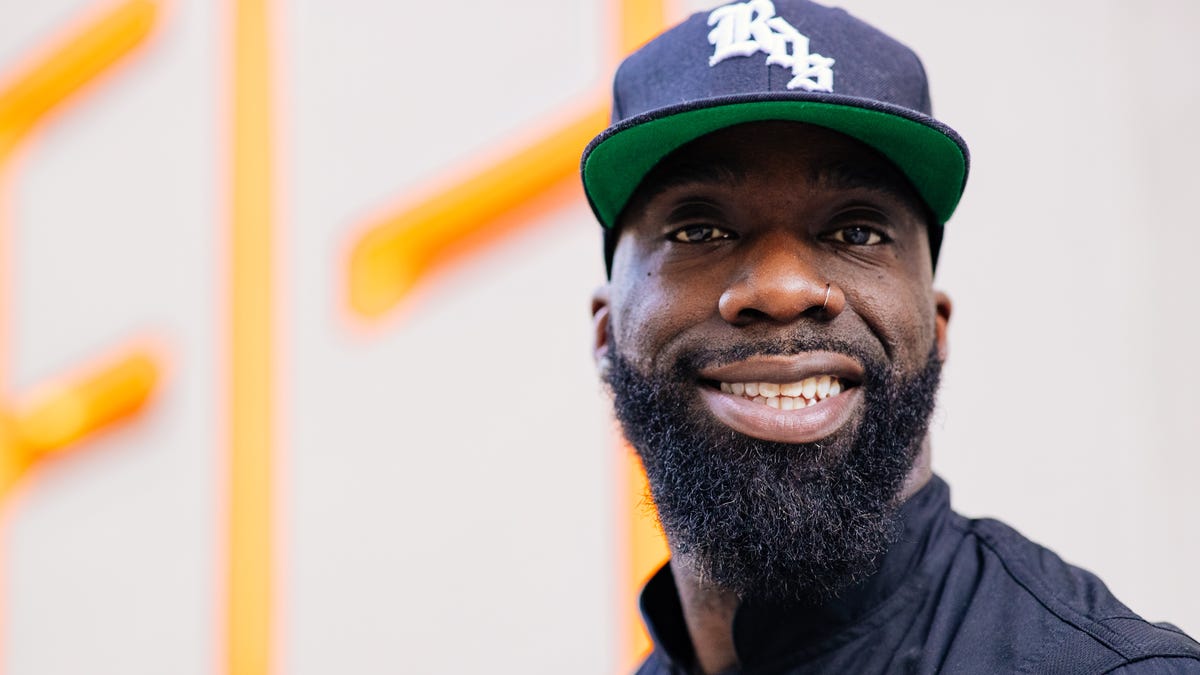
Columbia activist Mahmoud Khalil returns home after ICE detention
Columbia activist Mahmoud Khalil greeted supporters at Newark International Airport after being released from immigration detention.
- Mahmoud Khalil, the Columbia University graduate, was released from custody on June 20.
- Free speech was at the center of his case and whether the U.S. government targeted him for deportation because of his views on the Israel-Hamas war.
Though Mahmoud Khalil was released from federal custody on June 20, his legal counsel says the fight with President Donald Trump’s administration is far from over and continues to raise key free speech issues.
The administration said it intended to appeal New Jersey U.S. District Judge Michael Farbiarz’ ruling to release Khalil from U.S. Customs and Immigration Enforcement custody. He was being held at a Louisiana detainment facility for more than three months following his March 8 detention.
Farbiarz said on June 20 that there was no evidence that Khalil, a Columbia University graduate, would be a flight risk or danger to the community if he was released.
The administration has cited a provision of the Immigration and Nationality Act of 1952 in its effort to deport Khalil, a lawful permanent resident who was born in Syria. The clause allows the secretary of state to remove individuals from the country if they have reason to believe the person’s actions or presence undermines foreign policy interests.
Earlier in June, Farbiarz said the application of the provision to Khalil’s case violated his First Amendment right to free speech.
Trump has referred to Khalil as a “radical, foreign, pro-Hamas student.” Khalil’s lawyers have said there is no evidence he supports the organization, which the federal government has long designated as a terror group.
David Keating, president of the Institute for Free Speech, said he doesn’t think international students or visa holders should “take any comfort from (Khalil’s release) at all.”
While Khalil’s case garnered publicity and resources for his defense, Keating said that may not be the case for others if the Trump administration targets student protesters at a larger scale.
The administration’s actions thus far stand to have a “pretty stark” chilling effect on students, he said, adding that they may prompt some to reconsider their plans to study in the U.S.
“I think we’re sending a really bad lesson about freedoms in America,” Keating said. “We should be a beacon of freedom to the world, and I think one way to do that is to let even temporary visitors express their political views.”
White House says Khalil’s case is ‘not about free speech’
The Foundation for Individual Rights and Expression (FIRE) similarly believes the “fight for free speech is far from over,” according to FIRE attorney Conor Fitzpatrick.
The organization filed an amicus brief in support of Khalil that said Secretary of State Marco Rubio having the authority to deport non-citizens based on his sole assessment “places free expression in mortal peril.”
Farbiarz ruled against granting Rubio such authority earlier in June, saying that the government’s actions were chilling Khalil’s right to free speech and negatively impacting his career and reputation, which “adds up to irreparable harm.”
White House spokesperson Abigail Jackson told USA TODAY that Khalil’s case was “not about ‘free speech.’”
“This is about individuals who don’t have a right to be in the United States siding with Hamas terrorists and organizing group protests that made college campuses unsafe and harassed Jewish students,” Jackson said, adding that the administration “expect(s) to be vindicated on appeal” and “look(s) forward to removing Khalil from the United States.”
While Fitzpatrick said individuals who disagree with the administration’s stance and actions toward Khalil can write to Congress or attend rallies to make their voices heard, the fate of student protesters like Khalil ultimately lies in judges’ hands.
“Realistically, a lot of this is going to have to be resolved in the courts,” he said. “There’s only so much activism can do on that front.”
ACLU lawyer says Khalil’s case has ‘McCarthyite overtones’
The American Civil Liberties Union, which is part of Khalil’s legal counsel, was “overjoyed” by his release, but the organization said its celebration is tempered by the reality of the long legal road ahead.
“I’d say this is a victory in a critically important battle, but it’s a long war and we intend to fight it all the way through,” ACLU attorney Brian Hauss told USA TODAY.
Hauss noted that the U.S. Supreme Court affirmed noncitizens’ right to First Amendment protections in 1945’s Bridges v. Wixon decision. The case surrounded the government’s attempt to deport a man based on his alleged affiliation with the Communist Party.
There are “similar McCarthyite overtones” in Khalil’s case, Hauss said, referencing the senator who spearheaded the government’s anticommunist crusade.
While it’s “certainly possible” that a deportation case involving student protesters could end up at the Supreme Court, which has reversed long-standing rulings such as Roe v. Wade in recent years, Hauss said he’s optimistic the court would rule in their favor given its rulings upholding the First Amendment in recent years.
“For the Supreme Court to step back from those freedoms would be truly surprising, and I hope I’m not surprised,” he said.
Another high-profile case related to Khalil’s surrounds Tufts University student Rumeysa Ozturk, who was arrested in Boston in March after writing a pro-Palestinian opinion article that criticized the school’s response to the Israel-Gaza war in its student newspaper. A federal judge in Vermont ordered Ozturk to be released in May.
Contributing: Hannan Adely and Michael Loria
BrieAnna Frank is a First Amendment Reporting Fellow at USA TODAY. Reach her at bjfrank@usatoday.com.
USA TODAY’s coverage of First Amendment issues is funded through a collaboration between the Freedom Forum and Journalism Funding Partners. Funders do not provide editorial input.




![Jaguars exec says ‘100 [snaps] is a lot’](https://formen.fun/wp-content/uploads/2025/07/84436232007-usatsi-26431300-150x150.jpg)


